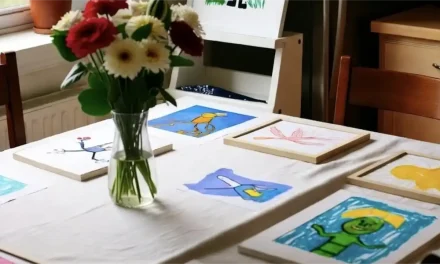
Love for Learning: Show Daily Zeal
W
hy do young minds lose their spark? Often, it’s not disinterest—it’s repetition that dulls them. But when your daily rhythm includes small sparks of curiosity, that monotony breaks. Whether you’re marveling at a bug, musing over a strange phrase, or asking “Why do birds sing?”, your energy makes ideas feel alive. Wonder doesn’t need a lesson plan. It just needs presence—and passion.
One morning, over breakfast, I mentioned a strange fact I’d read about octopus brains. My daughter looked up from her cereal with a flicker of interest. I didn’t press her. Later that week, she returned from the library with a book on sea creatures, quoting octopus trivia back at me with delight. It wasn’t the fact that stuck—it was the energy. She’d caught my fascination, and made it hers. That’s what daily zeal does: it lingers, even when we don’t see it right away.
Let your own interest stretch beyond utility. Laugh at a historical oddity, reread a poem aloud, wonder aloud about how a bridge holds. Children sense when attention is sincere—and they respond to it. When you treat learning as something worth returning to with fresh eyes, they follow suit. A daily moment of engagement is enough. You’re not trying to be a fountain of knowledge—you’re just showing them how to stay thirsty.
Love for Learning

Love for Learning: Test with Science
Encourage children to explore questions through hands-on investigation. Science experiments build reasoning, curiosity, and real understanding.

Love for Learning: Dive into Learning
Encourage enthusiasm and full engagement. When children dive into learning with curiosity and confidence, understanding grows naturally.
Table of contents

Primordial Soup for the Mind: Navigation
Navigate the book Primordial Soup for the Mind.
TIPS
- Share something you found interesting—an idea, fact, or observation.
- Let your curiosity show, even in small things.
- Focus less on teaching, more on modeling authentic interest.
ACTIVITIES
- Spark Share: Over breakfast or dinner, say, “Here’s something odd I learned today…” Invite your child to respond or guess why it matters.
- Joy Hunt: During errands or chores, ask, “What’s one thing that caught your attention today?”
EXAMPLE
I mentioned an odd fact about octopuses over breakfast. My daughter lit up, and days later brought home a book on sea creatures. It wasn’t about the octopus—it was about the spark.

Download “Primordial Soup for the Mind: A Parent’s Guide to Nurturing Intellectual Growth”
Enter your information to get this article and hundreds more as part of the FREE book Primordial Soup for the Mind.
Share your thoughts with the Thought Academy community in the Comments section below.

Sharpen those skills!
Enter your information to get our FREE practice exercises so you can hone your critical thinking and reasoning skills!







0 Comments